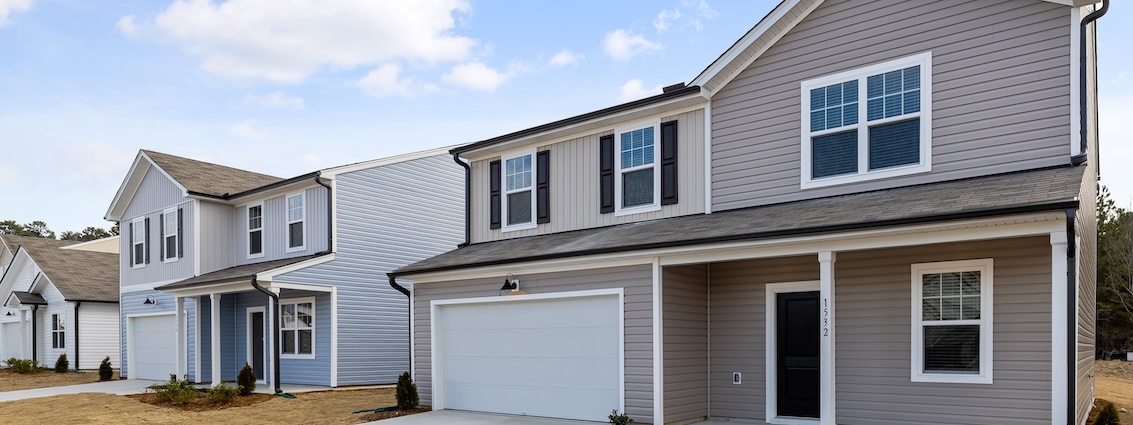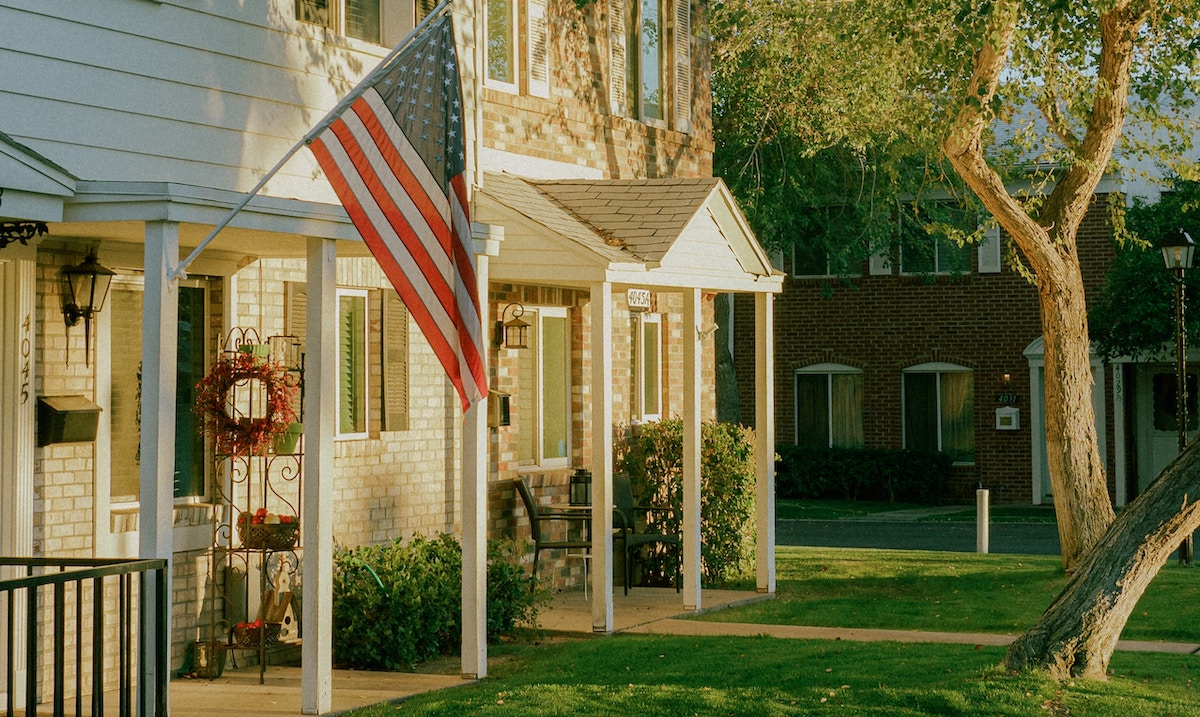Finance and Investments
Is Owning a Rental Property Worth it? The Pros and Cons
Last Updated Jan 15, 2024


Is owning a rental property worth it in 2024? It’s no secret that single-family homes represent a great investment opportunity. It’s why major corporations have concentrated on owning the housing supply, snapping up homes like crazy for years.
It's also why Belong wants to see homes back in the hands of individuals. It’s time to level the playing field and give more people access to homes and the opportunity to build long-term wealth. It’s why we’re making renting lovable, helping more people to reach their financial goals on the rental market.
But is owning a rental home worth it for you in 2024? This will depend on your personal circumstances, but to help you decide, this article will dig into the pros and cons of becoming a landlord. We’ll also take a look at how you can avoid or reduce some of the risks involved.
Key Takeaways
- There are many financial and tax benefits to owning a rental property, particularly if you lock in reliable long-term residents who can care for the home while it appreciates and generates equity and passive income.
- Renting out a home can be a great financial opportunity for many homeowners, not just real estate investors. This is particularly true if you have inherited a home or have locked in a record-low interest rate but need to move.
- There are risks to owning rental property, many of which can be mitigated by choosing the right residents and partner to help you navigate the challenges such as unpaid rent, unexpected costs and high workload.
Pros: 7 benefits of owning rental property
There’s a lot of reasons why you might have your sights set on owning an investment property for the rental market in 2024. Many see it as a way of achieving financial security. For others it’s an option for a home you don’t need to live in right now — such as an inheritance or when moving for work to rent elsewhere. Whatever your motivation, let’s start with the perks by looking at seven benefits of owning a rental home with long-term tenants.
1. Single-family rentals provide a strong investment with lower volatility
Roofstock reports that single-family rentals (SFRs) have provided nearly identical returns to the stock market — but with far less volatility. This makes owning a rental property an attractive investment option to build or diversify your portfolio. 2024 is an election year, which does make some investors nervous, but historical research from Investopedia suggests that these fears could be unfounded, with positive returns recorded in the majority of election years.
2. There are tax benefits to owning a rental home
A major perk of owning a rental property is that you can claim many of the home’s expenses as tax deductions. Mortgage interest, insurance costs, repairs and essential maintenance, property management or Belong fees are all common deductions.
There are other tax strategies that landlords can take advantage of, too. Ask your accountant about eligible expenses, offsetting income with depreciation of the home, and deferring capital gains.
3. Rental properties can earn passive income
Who doesn’t love the idea of earning money for no work? If you can rent out your home for more than it costs to run it, you will achieve positive cash flow and passive income.
How easy is it to achieve passive income on a home relies on a few factors. For starters, how much equity you own in the home and the strength of the local rental market. If for example you have inherited a home or purchased the home 20 years ago and have considerable equity, you’re likely to achieve positive cash flow quite easily.
If you bought a home more recently or have a large mortgage and rising interest rates, you will need to look more closely at the math to determine if you can achieve passive income.
4. Rental properties can appreciate over time
Recent house prices have skyrocketed and many experts predict some softening of the market in 2024. This talk can make it tempting to cash-in and sell your house. But once you've sold, you stop benefiting from any future appreciation. And there is no one 'housing market', so this may not ring true for your location based on local factors. Renting out your home can be a great way to buy you time to watch the housing market and decide when it's the right time to sell for your area.
5. Renting out your home gives you flexibility to return
When opportunity knocks, sometimes you need to leave a home you love. Job relocations, spending a year or two abroad, inheriting the family home — you may not be able to live in a home you own now, but that doesn’t mean you never will.
2024 will see a continued rise in what's known as ‘accidental landlords’. That is, people who need to put their home on the rental market unexpectedly. Particularly if you locked in a record-low interest rate but need to move, you may choose to hold onto your home and continue building equity rather than selling up and fighting for a new home in a market with low inventory and high competition.
If you can see yourself back in the home as your primary residence someday, renting to great tenants will give you the flexibility and time to decide what you want to do long-term.
6. A well-loved rental is a well-kept home
Homes are made to be lived in. If you have reliable long term residents in place, they will keep the house clean and well-kept. Having the home occupied also means there is someone there to report any issues like leaks or storm damage and deter squatters or vandals from entering the home.
Even if you can afford to leave your home vacant, remember that renting to good people lets you take advantage of the perks already mentioned (tax benefits, passive income) while having someone caring for and maintaining your home.
This is why Belong goes above and beyond when it comes to finding and screening the right residents, placing people that will treat your home like their own.
7. Renting gives you control over your asset
Homes are a unique investment class because you have a lot more control over them than most investment options. You make the call on who manages your property and the people they place. You can’t discriminate against anyone on the basis of their background or family size, but you can make smart choices with effective screening of your applicants (or letting the professionals like Belong handle it for you).
You can also make strategic upgrades to your home to attract a higher rental income while also improving the return on your investment when it comes time to sell.

Cons: 5 risks of owning rental property (and how to mitigate them)
We’ve shared some of the perks of owning a rental, but what about the risks? Being a landlord is not always glamorous, so let’s dive into the potential pitfalls of owning a rental property and how to best reduce your risk and liability.
1. Your home is at the mercy of the tenants placed in it
A common fear of first-time landlords is bad tenants. When you put your home on the rental market, it becomes vulnerable to the people that live there. There’s always a risk of getting a tenant that is a drain on your finances and sanity. If they violate the lease or conduct criminal activity, you could face a scenario where you need to evict them.
How to reduce these risks:
The best protection you can have for your home is getting help to find the right fit. Tenant screening services, property managers, or a residential network like Belong can help run background checks on their finances/credit score and rental history to verify that your applicants are as reliable as they say they are.
If you do face the unfortunate situation of needing to evict someone, this can cost anywhere from $500 to thousands of dollars in legal fees. Belong protects homeowners from costly evictions by providing up to $15,000 in coverage against legal fees for any resident we place.
2. Tenants can fall behind in their rent payments
A recent US Census pulse survey revealed that around 8 million Americans (or 15% of renters) are behind in their rent. That means just as many landlords are facing a risk of going into negative cash flow or not collecting income on their home.
How to reduce these risks:
As mentioned above, finding reliable residents is a good step towards protecting yourself and your bottom line. But anyone can fall on hard times, as the pandemic showed us all too well. Belong eliminates this risk for homeowners by guaranteeing rent every month for any resident we place, regardless of when they pay. Let us take on the job of collecting rent, while you enjoy predictable rental income.
3. Managing a rental property is hard work
Making a rental home profitable doesn’t happen without a great deal of work behind the scenes. If you choose to take this on, it could quickly become the second job you never wanted. Be prepared for anything from marketing to selecting tenants, conducting inspections and getting emergency repair calls when you’re on vacation.
How to reduce these risks:
Thankfully this is an easy one to overcome by partnering with a reliable company that won’t eat into your profits with hidden fees and charges. To make income truly ‘passive’ (i.e. no effort on your part!) let Belong PRO take care of everything from marketing and listing to repairs and communication — without any hidden costs that property managers charge.
Learn More: Discover Belong PRO, the best alternative to Property Management in Seattle, Redmond, Oakland, and many more cities across California, Florida, Texas, North Carolina and Washington State.
4. Rental home owners can face unexpected costs
All homes come with running costs, regardless of who is living in them. Water heaters can break, roof tiles crack, mold can grow. There are minimum standards for rental homes, which includes things like running hot water and not delaying repairs.
How to reduce these risks:
All homeowners should be budgeting for regular maintenance and repairs. You can find a summary of what to budget for on a rental in this article.
Belong also helps homeowners stay cash flow positive with our innovative financial options, such as Split It. Split It gives homeowners the option to finance anything they need for their rental home and spread the costs over their lease agreement — no down payment required. This means every homeowner on the Belong network can access professional repair and maintenance services through our extensive vendor network, while staying cash flow positive with Split It financing.
5. A rental home is a large concentration of assets
While a single-family home is considered more stable than other high performing assets, it also keeps a large sum of money held in a single asset class. This could be something you’re comfortable with. The risk is that real estate isn’t a liquid asset, so if your financial situation changes, it will take time before you can profit from a home sale. It’s also important to remember that if you do sell to achieve liquidity, there will be capital gains tax and fee implications.
How to reduce these risks:
If you’re buying a new property for the rental market, speak to a financial advisor first. They can help you plan for your individual situation and look at the bigger picture including fixed income, equities and real estate. This will help you to plan and make more informed decisions before tying up your money in real estate.
If you work with a partner like Belong, we will also assist by treating your property as both a home and an asset, making recommendations on how to improve your return on investment and attract the best residents. And because rent is guaranteed, you can predict how much money will come in every month.
Find out how Belong is making renting lovable
Whether you’re new to the real estate investing game, dealing with a problematic property management company or burnt out chasing rent every month, Belong can help.
Our smarter, future-ready services include:
- Guaranteed rent every month, regardless of if or when your residents pay
- Optimized rental pricing that uses technology and real-time demand to price your home with accuracy
- The Belong app that gives you and your residents access to everything you need
- Innovative financial products including the option to spread maintenance payments over the term of your lease agreement
- Access to dedicated landlords insurance to protect your asset (as well as coverage for your residents)
- Integration with the most popular rental platforms to get your home loved faster
- Instant access to an expansive vendor network of over 10,000 professionals that can handle everything from routine repairs to home upgrades
…and we’re just getting started! Belong is simplifying the rental experience across the US and helping more homeowners reach their financial goals with the most hassle-free property management service; Belong PRO.
Visit one of our many local pages to learn more:
San Francisco Property Management
Los Angeles Property Management
Jacksonville Property Management
Note: We’re not fans of the words ‘landlord’ and ‘tenant’. Instead, we call everyone in Belong’s residential network Homeowners and Residents. That said, we use terms like landlord and investor in this post to help more people find this useful information. This article provides a look at the pros and cons of owning rental property with long-term tenants, but should not replace financial advice specific to your own goals and situation.
About The Author
Melanie Kershaw
Mel Kershaw is a Content Lead at Belong. With an extensive background working with technology companies including Eventbrite and Yelp, she’s always looking for ways to create educational and informative articles that simplifies tech and solves problems for her audience.




